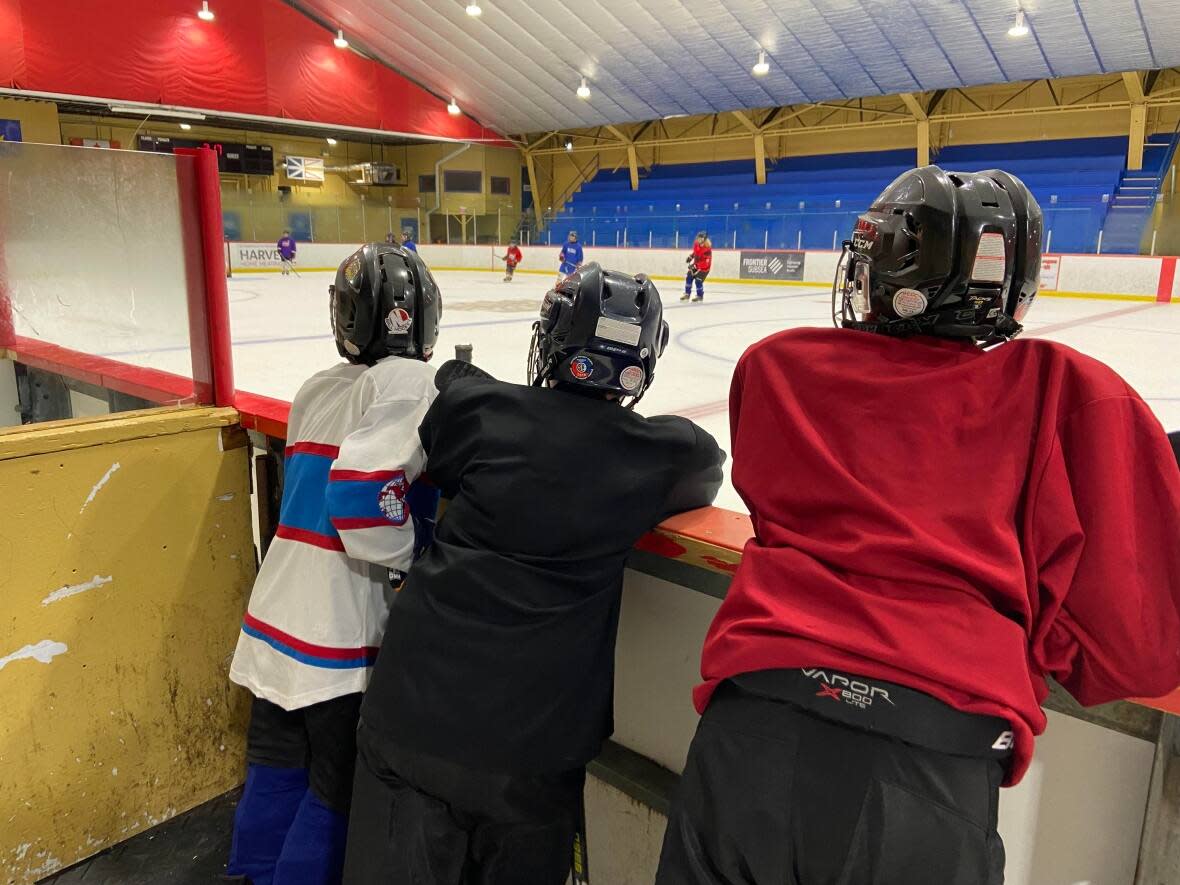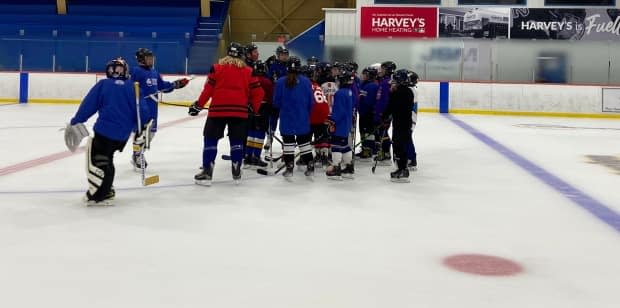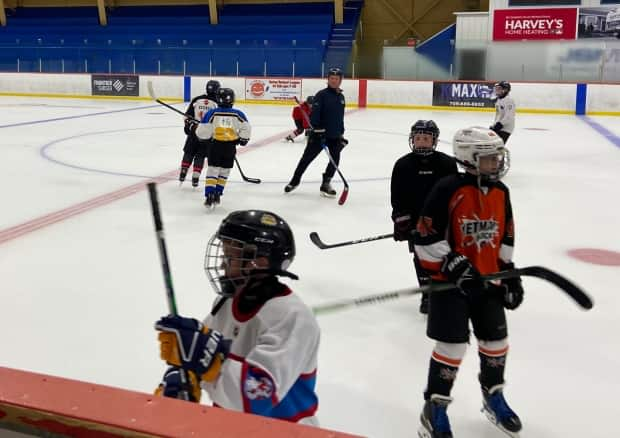Hockey N.L. launches mandatory sexual violence prevention pilot program

When hockey players in Newfoundland and Labrador lace hit the ice this season, they won't be the only ones working on new skills: so will some of their coaches — who must take sexual violence prevention training, starting this season.
Hockey N.L. announced a pilot program this week that will provide free and mandatory training for all coaching staff training involved with under-15, under-18 AAA, female and junior teams.
"It teaches them about some of the realities of sexual violence in sport and some of the tools that are available to try to help them and reduce that risk," said Jarred Butler, interim president of Hockey N.L.
Butler said coaches of teams with younger players are also encouraged to participate.
He said Hockey N.L. developed the course with two medical students — Amy Graham and Patricia Tracey — who created a similar program for university sport departments while studying at St. Francis Xavier University in Nova Scotia.

The program has an online module that takes about an hour to complete and participants are quizzed on the content in order to get a certificate of completion.
Butler cited statistics that show between two to eight per cent of minor athletes experience sexual violence, with the number growing to as much of a quarter of athletes at the university level.
"The logic behind our approach is that if we do the education earlier, as these athletes are moving up through the levels … they're going to get more awareness so that when they get to university level, we hopefully will see those numbers decrease," said Butler.
Meanwhile, one in two women experience sexual assault, according to the Newfoundland and Labrador sexual assault crisis and prevention centre.
"I think it's behooving of any organization, every individual in the community to do what they can to improve that very, very dire statistic," he said, adding he wants Hockey N.L. to become a leader in reducing sexual violence in sport.
Training not reaction to Hockey Canada scandal
Hockey N.L. is implementing the training months after Hockey Canada, the national governing body for ice hockey in the country, has been embroiled in scandal.
Reports surfaced this summer that Hockey Canada settled with claims sexual assault victims, using a pot of money that is funded in part by minor hockey registration fees.
The scandal has shaken the sport after it was alleged eight members of Canada's world junior team sexually assaulted a woman in London, Ont., in 2018. Hockey Canada settled a lawsuit, which stems from the allegation, with a woman for $3.5 million.
In July more allegations of sexual assault involving a 2003 world junior team came to light.

However, Butler said work on Hockey N.L.'s program began before the scandal broke and has been in the works for the last 18 months.
"I'm hoping that people recognize that this is not a response. This is the natural evolution of Hockey N.L. maintaining its leadership in providing this crucial education to all of our coaches and members," he said.
Good 1st step, say sexual assault prevention advocate
Sandra McKellar, executive director of the N.L. Sexual Assault Crisis and Prevention Centre, says the program is a good initial step.
"I think it's way past due," she said.
McKellar said sexual violence is often downplayed and far more prevalent than many people realize. She says it can deeply impact a victim and lead to self-blame and feelings of shame.
"The impact is felt all over and it's not something that goes away," she said.

McKellar also cautions that sexual violence training can also come with disclosures from victims who many need support afterward.
"It should also involve organizations such as ours," she said. "We provide service, we provide support."
She would like to see the training refreshers offered to coaches repeatedly, and see it extended to all coaches and players — even younger ones in an age appropriate way.
Meanwhile, Butler said, after this hockey season, the medical students who created the program will evaluate the pilot. He hopes to expand the training to more coaches next year, and eventually to players, adding he also wants to add mental health training to the mix.
"I think the more people who can complete this course, I think the better off our program will be," he said.

 Yahoo Movies
Yahoo Movies 
